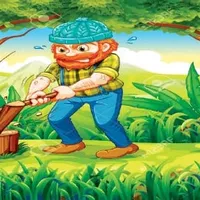The Woodman and the Serpent
|Дровосек|||Змей
|le bûcheron|||serpent
|Người đốn gỗ|||
Der Holzfäller und die Schlange
El leñador y la serpiente
Le bûcheron et le serpent
木こりと蛇
Drzewiec i wąż
O lenhador e a serpente
Лесовик и змея
Oduncu ve Yılan
Người thợ gỗ và con rắn
樵夫与蛇
樵夫與蛇
One wintry day a Woodman was tramping home from his work when he saw something black lying on the snow.
|зимний|||||шёл||||||||||лежать|||
|d'hiver|||bûcheron||marchant|||||||||||||
|winterlich||||||||||||||||||
|wintry||||||||||||||||||
||||||걸어가고 있었다|||||||||||||
Eines winterlichen Tages stapfte ein Holzfäller von seiner Arbeit nach Hause, als er etwas Schwarzes im Schnee liegen sah.
Un día de invierno, un leñador volvía a casa de su trabajo cuando vio algo negro sobre la nieve.
Un jour d'hiver, un bûcheron rentrait à pied de son travail lorsqu'il aperçut quelque chose de noir sur la neige.
Một ngày đông lạnh lẽo, một người thợ gỗ đang đi bộ về nhà sau giờ làm việc thì thấy một thứ gì đó màu đen nằm trên tuyết.
When he came closer he saw it was a Serpent to all appearance dead.
||||||||||||видимости|мертвый
|||||||||serpent||||
|||||||||serpent||||
|||näher||||||||||
|||||||||뱀||||
|||||||||had||||
Als er näher kam, sah er, dass es eine Schlange war, die allem Anschein nach tot war.
Cuando se acercó vio que era una serpiente aparentemente muerta.
En s'approchant, il vit qu'il s'agissait d'un serpent qui semblait mort.
Khi đến gần hơn, anh thấy đó là một con rắn có vẻ như đã chết.
But he took it up and put it in his bosom to warm while he hurried home.
||||||||||переднюю часть одежды|||||спешил|
||||||||||poitrine||||||
||||||||||Brust|||||eilte|
||||||||||품에||||||
||||||||||ngực||||||
Aber er nahm es auf und steckte es in seinen Schoß, um es zu wärmen, während er nach Hause eilte.
Pero lo cogió y se lo metió en el pecho para calentarlo mientras se apresuraba a volver a casa.
Mais il l'a prise et l'a mise dans son sein pour la réchauffer pendant qu'il se dépêchait de rentrer chez lui.
Nhưng anh ấy nhặt nó lên và bỏ vào lòng để ấm trong khi anh vội vàng về nhà.
As soon as he got indoors he put the Serpent down on the hearth before the fire.
|||||||||||||камин|||
|||||||||serpent||||foyer|||
|||||drinnen||||||||Herd|||
|||||||||||||난로|||
|||||||||||||hearth|||
Sobald er im Haus war, legte er die Schlange auf den Herd vor das Feuer.
En cuanto entró en casa, puso la serpiente en la chimenea, delante del fuego.
Dès qu'il fut rentré, il posa le serpent sur la cheminée, devant le feu.
Ngay khi anh ấy vào trong nhà, anh đã đặt Con Rắn xuống bậc lửa trước ngọn lửa.
The children watched it and saw it slowly come to life again.
Die Kinder beobachteten es und sahen, wie es langsam wieder zum Leben erwachte.
Los niños la observaron y vieron cómo volvía lentamente a la vida.
Les enfants l'ont observé et l'ont vu reprendre vie petit à petit.
Những đứa trẻ quan sát nó và thấy nó từ từ sống lại.
Then one of them stooped down to stroke it, but the Serpent raised its head and put out its fangs and was about to sting the child to death.
||||наклонился|||погладить|||||подняла||голову|||||зубы|||||ужалить||||смерти
|||||||caresser||||serpent||||||||crocs|||||piquer||||
||||구부렸다||||||||||||||||||||||||
||||cúi xuống||||||||||||||||||||||||
Da bückte sich einer von ihnen, um es zu streicheln, aber die Schlange hob ihren Kopf, streckte ihre Zähne aus und wollte das Kind zu Tode stechen.
Entonces uno de ellos se inclinó para acariciarlo, pero la serpiente levantó la cabeza y sacó los colmillos y estaba a punto de picar al niño hasta matarlo.
L'un d'eux se baissa pour le caresser, mais le serpent leva la tête, sortit ses crocs et s'apprêta à piquer l'enfant jusqu'à ce qu'il meure.
Rồi một trong số họ cúi xuống để vuốt ve nó, nhưng con Rắn đã ngẩng đầu lên và phun ra nọc độc, sắp sửa đốt con trẻ đến chết.
So the Woodman seized his axe, and with one stroke cut the Serpent in two.
|||взял||топор|||||||||
||le bûcheron|||hache|||||||serpent||
|||||||||타격|||||
Da ergriff der Holzfäller seine Axt und hieb die Schlange mit einem Schlag in zwei Teile.
Entonces el leñador tomó su hacha y de un golpe partió en dos a la serpiente.
Le bûcheron saisit sa hache et, d'un seul coup, coupa le serpent en deux.
Vì thế, Người thợ gỗ đã cầm rìu của mình và với một nhát chém đã chẻ con Rắn ra làm hai.
‘Ah,' said he, ‘No gratitude from the wicked.'
|||žádná||||
||||благодарности|||злых
|||||||Bösen
||||gratitude|||
'Ah', sagte er, 'keine Dankbarkeit von den Bösen'.
'Ah,' dijo él, 'No hay gratitud de los malvados.'
Ah, dit-il, pas de reconnaissance de la part des méchants.
‘Ah,' ông ta nói, ‘Không có lòng tri ân từ kẻ ác.'

